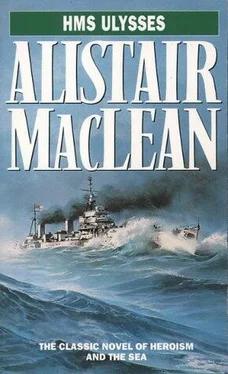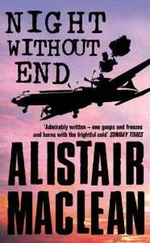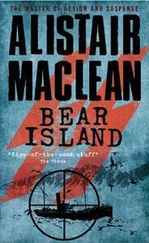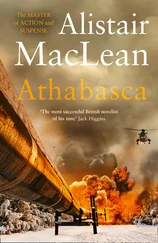Alistair MacLean - HMS Ulysses
Здесь есть возможность читать онлайн «Alistair MacLean - HMS Ulysses» — ознакомительный отрывок электронной книги совершенно бесплатно, а после прочтения отрывка купить полную версию. В некоторых случаях можно слушать аудио, скачать через торрент в формате fb2 и присутствует краткое содержание. Жанр: prose_military, на английском языке. Описание произведения, (предисловие) а так же отзывы посетителей доступны на портале библиотеки ЛибКат.
- Название:HMS Ulysses
- Автор:
- Жанр:
- Год:неизвестен
- ISBN:нет данных
- Рейтинг книги:3 / 5. Голосов: 1
-
Избранное:Добавить в избранное
- Отзывы:
-
Ваша оценка:
- 60
- 1
- 2
- 3
- 4
- 5
HMS Ulysses: краткое содержание, описание и аннотация
Предлагаем к чтению аннотацию, описание, краткое содержание или предисловие (зависит от того, что написал сам автор книги «HMS Ulysses»). Если вы не нашли необходимую информацию о книге — напишите в комментариях, мы постараемся отыскать её.
HMS Ulysses — читать онлайн ознакомительный отрывок
Ниже представлен текст книги, разбитый по страницам. Система сохранения места последней прочитанной страницы, позволяет с удобством читать онлайн бесплатно книгу «HMS Ulysses», без необходимости каждый раз заново искать на чём Вы остановились. Поставьте закладку, и сможете в любой момент перейти на страницу, на которой закончили чтение.
Интервал:
Закладка:
Ninety seconds passed, a hundred, two minutes, and still no sign of the Condors. A hundred eyes stared out into the cloud-wrack astern: it remained obstinately, tantalisingly grey and featureless.
Two and a half minutes passed. Still there was nothing.
"Anybody seen anything?" Vallery asked anxiously. His eyes never left that patch of cloud astern. "Nothing? Nothing at all?" The silence remained, oppressive, unbroken.
Three minutes. Three and a half. Four. Vallery looked away to rest his straining eyes, caught Turner looking at him, caught the growing apprehension, the slow dawn and strengthening of surmise in the lean face. Wordlessly, at the same instant, they swung round, staring out into the sky ahead.
"That's it!" Vallery said quickly. "You're right, Commander, you must be!" He was aware that everyone had turned now, was peering ahead as intently as himself. "They've by-passed us, they're going to take us from ahead. Warn the guns! Dear God, they almost had us!" he whispered softly.
"Eyes skinned, everyone!" Turner boomed. The apprehension was gone, the irrepressible joviality, the gratifying anticipation of action was back again. "And I mean everyone! We're all in the same boat together. No joke intended. Fourteen days' leave to the first man to sight a Condor!"
"Effective as from when?" the Kapok Kid asked dryly.
Turner grinned at him. Then the smile died, the head lifted sharply in sudden attention.
"Can you hear 'em?" he asked. His voice was soft, almost as if he feared the enemy might be listening. "They're up there, somewhere, damned if I can tell where, though. If only that wind-----"
The vicious, urgent thudding of the boat-deck Oerlikons stopped him dead in mid-sentence, had him whirling round and plunging for the broadcast transmitter in one galvanic, concerted movement. But even then he was too late-he would have been too late anyway. The Condors-the first three in line ahead, were already visible-were already through the cloud, 500 feet up and barely half a mile away, dead astern. Astern. The bombers must have circled back to the west as soon as they had reached the clouds, completely fooled them as to their intentions... Six seconds, six seconds is time and to spare for even a heavy bomber to come less than half a mile in a shallow dive. There was barely time for realisation, for the first bitter welling of mortification and chagrin when the Condors were on them.
It was almost dusk, now, the weird half-light of the Arctic twilight.
Tracers, glowing hot pinpoints of light streaking out through the darkening sky, were clearly seen, at first swinging erratically, fading away to extinction in the far distance, then steadying, miraculously dying in the instant of birth as they sank home into the fuselages of the swooping Condors. But time was too short-the guns were on target for a maximum of two seconds-and these giant Focke-Wulfs had a tremendous capacity for absorbing punishment. The leading Condor levelled out about three hundred feet, its medium 250-kilo bombs momentarily parallelling its line of flight, then arching down lazily towards the Ulysses. At once the Condor pulled its nose up in maximum climb, the four great engines labouring in desynchronised clamour, as it sought the protection of the clouds.
The bombs missed. They missed by about thirty feet, exploding on contact with the water just abaft the bridge. For the men in the T.S., engine-and boiler-rooms, the crash and concussion must have been frightful-literally ear-shattering. Waterspouts, twenty feet in diameter at their turbulent bases, streaked up whitely into the twilight, high above the truncated masts, hung there momentarily, then collapsed in drenching cascades on the bridge and boat-deck aft, soaking, saturating, every gunner on the pom-pom and in the open Oerlikon cockpits. The temperature stood at 2ø above zero-30ø of frost.
More dangerously, the blinding sheets of water completely unsighted the gunners. Apart from a lone Oerlikon on a sponson below the starboard side of the bridge, the next Condor pressed home its attack against a minimum of resistance. The approach was perfect, dead fore-and-aft on the centre line; but the pilot overshot, probably in his anxiety to hold course. Three bombs this time: for a second, it seemed that they must miss, but the first smashed into the fo'c'sle between the breakwater and the capstan, exploding in the flat below, heaving up the deck in a tangled wreckage of broken steel. Even as the explosion died, the men on the bridge could hear a curious clanking rattle: the explosion must have shattered the fo'c'sle capstan and Blake stopper simultaneously, and sheared the retaining shackle on the anchor cable, and the starboard anchor, completely out of control, was plummeting down to the depths of the Arctic.
The other bombs fell into the sea directly ahead, and from the Stirling, a mile ahead, it seemed that the Ulysses disappeared under the great column of water. But the water subsided, and the Ulysses steamed on, apparently unharmed. From dead ahead, the sweeping lift of the bows hid all damage, and there was neither flame nor smoke-hundreds of gallons of water, falling from the sky and pouring in through the great jagged holes in the deck, had killed any fire there was. The Ulysses was still a lucky ship... And then, at last, after twenty months of the fantastic escapes, the fabulous good fortune that had made her a legend, a byword for immunity throughout all the north, the luck of the Ulysses ran out.
Ironically, the Ulysses brought disaster on herself. The main armament, the 5.25s aft, had opened up now, was pumping its 100-lb. shells at the diving bombers, at point-blank range and over equivalent of open sights. The very first shell from 'X' turret sheared away the starboard wing of the third Condor between the engines, tore it completely away to spin slowly like a fluttering leaf into the darkly-rolling sea. For a fraction of a second the Folke-Wulf held on course, then abruptly the nose tipped over and the giant plane screamed down in an almost vertical dive, her remaining engines inexplicably accelerating to a deafening crescendo as she hurtled arrow-straight for the deck of the Ulysses.
There was no time to take any avoiding action, no time to think, no time even to hope. A cluster of jettisoned bombs crashed in to the boiling wake--the Ulysses was already doing upwards of thirty knots-and two more crashed through the poop-deck, the first exploding in the after seamen's mess-deck, the other in the marines' mess-deck. One second later, with a tremendous roar and in a blinding sheet of gasoline flame, the Condor itself, at a speed of upwards of three hundred m.p.h., crashed squarely into the front of "Y" turret.
Incredibly, that was the last attack on the Ulysses-incredibly, because the Ulysses was defenceless now, wide open to any air attack from astern. 'Y' turret was gone, 'X' turret, still magically undamaged, was half-buried under the splintered wreckage of the Condor, blinded by the smoke and leaping flame. The boat-deck Oerlikons, too, had fallen silent. The gunners, half-drowned under the deluge of less than a minute ago, were being frantically dragged from their cockpits: a difficult enough task at any time, it was almost impossible with their clothes already frozen solid, their duffels cracking and crackling like splintering matchwood as the men were dragged over the side of their cockpits. With all speed, they were rushed below, thrust into the galley passage to thaw, literally to thaw: agony, excruciating agony, but the only alternative to the quick and certain death which would have come to them in their ice-bound cockpits.
The remaining Condors had pulled away in a slow climbing turn to starboard. They were surrounded, bracketed fore and aft and on either side, by scores of woolly, expanding puffs of exploding A.A. shells, but they flew straight through these, charmed, unhurt. Already, they were beginning to disappear into the clouds, to settle down on a south-east course for home. Strange, Vallery thought vaguely, one would have expected them to hammer home their initial advantage of surprise, to concentrate on the crippled Ulysses: certainly, thus far the Condor crews had shown no lack of courage... He gave it up, turned his attention to more immediate worries. And there was plenty to worry about.
Читать дальшеИнтервал:
Закладка:
Похожие книги на «HMS Ulysses»
Представляем Вашему вниманию похожие книги на «HMS Ulysses» списком для выбора. Мы отобрали схожую по названию и смыслу литературу в надежде предоставить читателям больше вариантов отыскать новые, интересные, ещё непрочитанные произведения.
Обсуждение, отзывы о книге «HMS Ulysses» и просто собственные мнения читателей. Оставьте ваши комментарии, напишите, что Вы думаете о произведении, его смысле или главных героях. Укажите что конкретно понравилось, а что нет, и почему Вы так считаете.












